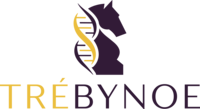Frequently Asked Questions
Who to talk to about retirement planning near me?
The appropriate person to talk to about retirement planning near you is a qualified financial planner or advisor. They can provide personalized guidance and strategies to help you achieve your retirement goals.
How to choose a retirement planner nearby?
Choosing a retirement planner nearby involves evaluating their credentials, experience, and client reviews, while ensuring they offer personalized services that align with your financial goals and needs.
What are the benefits of retirement planning?
The benefits of retirement planning include ensuring financial security in your later years, allowing for a comfortable lifestyle, and reducing stress related to unexpected expenses. It also helps in maximizing savings and investments to achieve long-term financial goals.
Where to find local retirement planning services?
Local retirement planning services can be found by researching financial planning firms in your area, seeking recommendations from friends or family, and checking online directories for professionals, like Tré Bynoe, who specialize in retirement planning for Corporation Owners.
What should I consider in retirement planning?
Retirement planning considerations include assessing your desired lifestyle, estimating income needs, evaluating savings and investment options, and accounting for healthcare costs and taxes. A comprehensive approach ensures financial security and peace of mind during retirement.
How to assess retirement planners in Saskatoon?
Assessing retirement planners in Saskatoon involves evaluating their credentials, experience, fee structures, and client reviews to ensure they align with your financial goals and values. Consider scheduling consultations to gauge their approach and compatibility with your needs.
What questions to ask a retirement advisor?
When considering what questions to ask a retirement advisor, it’s crucial to focus on their experience, approach to retirement planning, and understanding of your specific needs. Ask about their credentials, investment strategies, fee structure, and how they will help you achieve your retirement goals.
How much does retirement planning cost?
The cost of retirement planning varies based on individual needs and the complexity of financial situations. Typically, fees can range from hourly rates to a percentage of assets managed, ensuring personalized guidance for your financial future.
What age should I start retirement planning?
The age to start retirement planning is generally early in your career, ideally in your 20s or 30s. Starting sooner allows for more savings and investment growth, enhancing your financial security in retirement.
How to create a retirement savings plan?
Creating a retirement savings plan involves assessing your financial goals, determining your desired retirement age, estimating future expenses, and consistently contributing to retirement accounts like RRSPs or TFSA, while regularly reviewing and adjusting your plan as needed.
What are common retirement planning mistakes?
Common retirement planning mistakes include underestimating expenses, failing to diversify investments, delaying savings, and not adjusting plans for inflation. These errors can significantly impact long-term financial security and retirement goals.
How does retirement planning affect my finances?
Retirement planning significantly impacts your finances by helping you set clear savings goals, manage investments, and anticipate expenditures. This proactive approach enables you to secure financial stability and maintain your desired lifestyle during retirement.
What services do retirement planners provide?
Retirement planners provide a range of services including personalized retirement strategy development, investment management, tax optimization, and income planning to ensure clients achieve their financial goals and maintain their desired lifestyle during retirement.
How often should I review my retirement plan?
You should review your retirement plan regularly, ideally at least once a year, or more frequently if there are significant life changes, financial shifts, or market fluctuations. This ensures your plan remains aligned with your goals and current circumstances.
What factors influence retirement savings plans?
The factors influencing retirement savings plans include individual income, spending habits, retirement goals, investment choices, and tax implications. Each of these elements plays a critical role in determining how much you should save for a secure future.
How to calculate my retirement savings needs?
Calculating your retirement savings needs involves estimating your future expenses and income sources. Consider factors like your desired retirement lifestyle, longevity, inflation, and any pensions or government benefits, then use this data to determine how much you need to save annually.
What documents are needed for retirement planning?
The documents needed for retirement planning include financial statements, tax returns, insurance policies, investment account statements, pension information, and any estate planning documents. Gathering these will help create a comprehensive retirement plan.
How does inflation impact retirement planning?
The impact of inflation on retirement planning is significant. It erodes purchasing power, meaning that the money set aside for retirement may not stretch as far as anticipated, necessitating careful investment strategies and adjustments to spending plans to maintain financial stability.
What retirement accounts should I consider?
The retirement accounts you should consider include a Registered Retirement Savings Plan (RRSP), Tax-Free Savings Account (TFSA), and employer-sponsored pension plans. Each offers unique tax benefits and investment options to support your retirement goals.
How to maximize retirement savings contributions?
Maximizing retirement savings contributions involves consistently contributing the maximum allowable amount to retirement accounts, taking advantage of employer matches, and considering catch-up contributions if eligible, while also regularly reviewing and adjusting your investment strategy for optimal growth.
What role does risk play in retirement planning?
The role of risk in retirement planning is crucial, as it influences investment strategies and potential returns. Understanding and managing risk helps ensure that savings grow adequately to support a comfortable retirement while addressing longevity and inflation concerns.
How to adjust retirement plans for life changes?
Adjusting retirement plans for life changes involves regularly reviewing your financial goals, income sources, and expenses. Significant life events, such as marriage, career changes, or health issues, may necessitate revisiting your investment strategies and savings rates to ensure long-term security.
What tools assist with retirement planning?
The tools that assist with retirement planning include retirement calculators, budgeting software, investment tracking apps, and comprehensive financial planning software like Conquest. These resources help individuals make informed decisions to secure their financial future in retirement.
How to evaluate retirement investment options?
Evaluating retirement investment options involves analyzing factors such as risk tolerance, time horizon, potential returns, and fees. It's essential to choose options that align with your financial goals and provide diversification for long-term growth.
What strategies help secure a comfortable retirement?
Strategies that help secure a comfortable retirement include creating a comprehensive financial plan, consistently saving and investing, diversifying assets, maximizing retirement account contributions, and regularly reviewing and adjusting your strategy to align with changing goals and market conditions.




